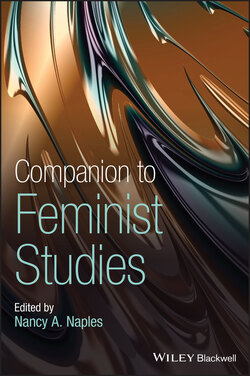Читать книгу Companion to Feminist Studies - Группа авторов - Страница 33
Conclusion
ОглавлениеBiological determinism has a long history and is deeply embedded in Western scholarship. Both biological determinism and essentialism have taken many different forms over the centuries. While extreme biological determinism is rarely advocated by scholars today, theories that promote biology as offering the strongest explanation for sex and gender differences and differences in sexuality are still popular and widely accepted in academia and in the media. Current theories centering on genes, hormones, and brains have been critiqued by feminist scholars and others, who question the quality of the science behind the assertions that are made. Questions arise, also, about the narrow conception of humanity and human life that a theory focused primarily on genes, hormones, or brains can offer. Such theories fail to capture the reality that humans are not only biological but also social and psychological beings, enmeshed in complex and ongoing exchanges with their human and nonhuman contexts. It is thus unhelpful to ignore the social nature of human biology as much as it is to ignore the biological nature of all humans.
Essentialism is often found hand in hand with biological determinism although the perceived roots of difference may be social as well as biological. Seeing males and females, homosexuals and heterosexuals as different “types,” with fixed and enduring essences is questionable given the evidence of a degree of life‐course fluidity within individuals and the varied and overlapping nature of sex, gender, and sexual expression across individuals.
Combating essentialism and biological determinism and reductionism may be a difficult and ongoing struggle. However, it is high time to leave the old and fallacious certainties of essentialism and biological determinism behind and embrace the challenge of a nonessentialist, nondualist future, one that fully embraces the dynamic complexity, potentialities, and constraints of human life. Theories such as developmental dynamic systems theories are attempting to capture this complexity. In feminist theory we need to take account of the material and the biological. The “new materialism” and the “new biology” converge on similar visions and together provide a more adequate base for theorizing human ontology and potential and – critically – they provide a better foundation for feminist theory and action.
